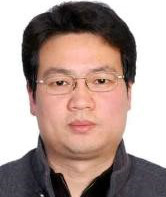| 个人简介 | |
|---|---|
 Prof. Jietai Jing East China Normal University, China |
|
| 标题: Quantum Light Sources based on Atomic Ensembles | |
| 摘要: Generation of quantum light sources, such as multipartite quantum entanglement or quantum correlations has been given broad attention due to its importance for fundamental science, quantum information processing and quantum metrology. In this talk, I will review our recent works on generation of quantum light sources based on atomic ensemble. Several types of quantum light sources with strong quantum correlations are generated from phase sensitive or phase insensitive cascaded four-wave mixing processes in hot atomic ensembles. We study its quantum features by exploiting different types of entanglement criteria. Our studies and results have potential applications in quantum information and quantum metrology. | |
| 简介: Jietai Jing (Ph.D.) now is a Professor at State Key Lab of Precision Spectroscopy in East China Normal University, in Shanghai, China. He has been selected as Eastern Scholar, Pujiang Scholar and Shuguang Scholar. His research is the study of the entanglement generation from a hot atomic vapor and its application in quantum metrology and quantum information. He started his PhD study in the field of quantum information and quantum optics in Shanxi University in July, 1999. During his PhD study, he experimentally generated tripartite entanglement and applied it to realize controlled quantum dense coding. After getting his PhD degree in June, 2004, he became a postdoctoral research associate in University of Virginia (UVa), USA in August, 2004. In UVa, he experimentally studied the entanglement generation from an optical parametric oscillator. After two year stay at UVa, he moved to University of Maryland as a postdoctoral research associate in September, 2006, where he studied the high fidelity atom detection using a cavity QED system. In April, 2008, he got a permanent position of the current position in East China Normal University. He has published peer-reviewed papers in high-impact journals, including Physical Review Letters, Nature Communications, Applied Physics Letters and etc. | |
